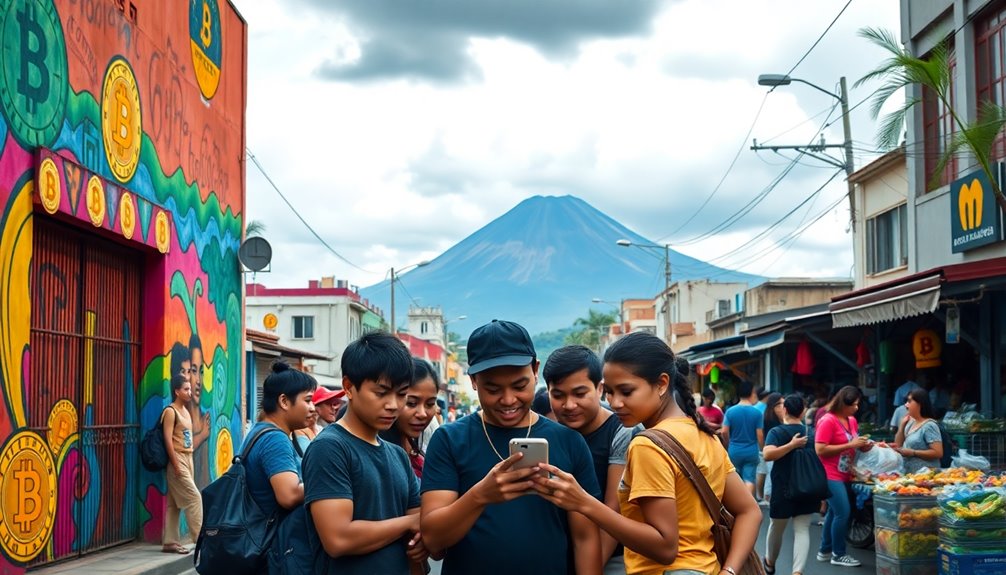You might have heard about El Salvador's ambitious Bitcoin Law, aimed at transforming its economy and promoting financial inclusion. However, as initial excitement fades, the reality of adoption presents challenges that are hard to ignore. With protests and economic concerns on the rise, the government's recent changes raise questions about the law's viability. What does this mean for the future of digital currency in the country? The implications could be far-reaching.

El Salvador's Bitcoin Law marks a groundbreaking shift in the world of finance, making Bitcoin legal tender alongside the US dollar. Passed on June 9, 2021, this law aimed to increase financial inclusion and cut remittance costs for the over 20% of the country's GDP reliant on remittances. However, as you might expect, the implementation hasn't been smooth sailing. Concerns about Bitcoin's notorious volatility have raised eyebrows both locally and internationally, leading to a mix of excitement and apprehension among the Salvadoran public.
When Bitcoin officially became legal tender on September 7, 2021, the government introduced the Chivo wallet, hoping to facilitate Bitcoin transactions. Within a month, three million people downloaded the app, but not without issues. On launch day, the Chivo app experienced technical difficulties, which dampened initial enthusiasm. Following the law's implementation, more Salvadorans had Bitcoin wallets than traditional bank accounts, which suggests a shift towards increased financial inclusion.
Despite the government mandating the use of Bitcoin, many businesses hesitated to adopt it for transactions. You'd find that only 12% of consumers used Bitcoin for payments initially, even with incentives like $30 in Bitcoin offered to encourage usage.
As the months rolled on, the law faced mounting criticism. Protests erupted from citizens worried about the economic risks associated with Bitcoin's volatility. You might find it interesting that the International Monetary Fund (IMF) even stepped in, leading to amendments that made Bitcoin "voluntary legal tender." With these changes, Bitcoin was no longer classified as a currency, and you couldn't use it for tax payments.
The state also stepped back from its role in facilitating Bitcoin transactions, complicating the initial vision of widespread adoption. The potential for reducing remittance fees has been a double-edged sword. While the law aimed to lower costs from 30-50% by using Bitcoin, the volatility of the cryptocurrency poses a significant risk to financial stability.
Companies face challenges in accounting for Bitcoin, and many have implemented systems to automatically convert Bitcoin to US dollars, highlighting the complexities of this new financial landscape.
Looking ahead, El Salvador's Bitcoin Law faces an uncertain future. The initial excitement has waned as both the public and businesses grapple with the practical implications of using Bitcoin. While the government has shown a commitment to innovation, the reality of adoption remains fraught with challenges.
As an observer, you can't help but wonder how this bold experiment in cryptocurrency will evolve and what lessons it may hold for the global financial community.










